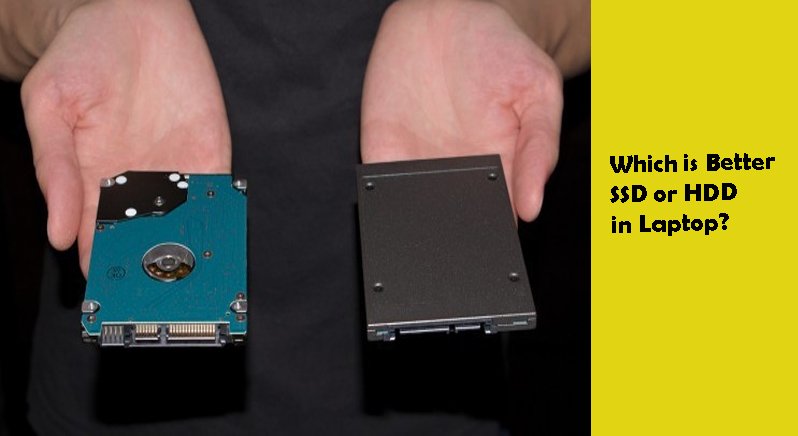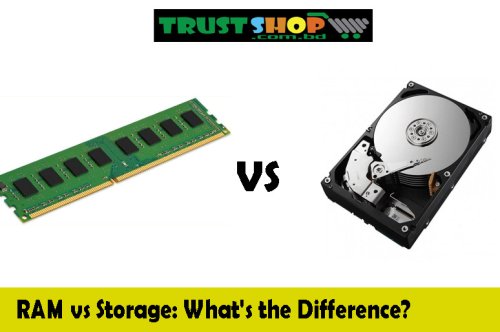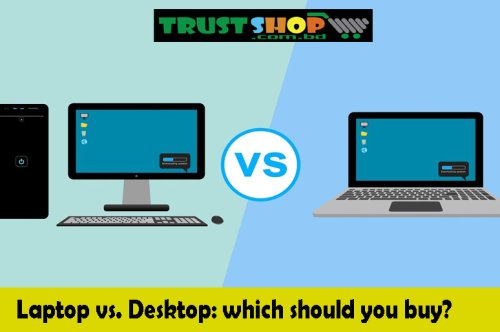Which is Better SSD or HDD in Laptop?

Which is Better SSD or HDD in Laptop?
In the fast-paced digital world of today, where laptops are an important part of our daily lives, the storage device we choose can have a big effect on how we use computers. As technology keeps getting better, people still have to decide between Solid State Drives (SSDs) and Hard Disk Drives (HDDs) in their laptops. "Which is better: SSD or HDD in a laptop?" is a basic question that needs careful thought.
The storage on your laptop not only affects its speed, but also its portability, durability, and general usefulness. This choice requires weighing the pros and cons of two different storage systems, each of which has its own set of pros and cons. In this article, we'll go into detail about the SSD vs. HDD debate and look at the most important things to consider when picking a storage solution for your laptop. Whether you're a casual user, a professional, or a gamer, you need to understand this choice to make sure your laptop meets your wants and expectations.
When you upgrade or buy a new laptop, one of the most important choices you'll have to make is what kind of storage you want. Solid State Drives (SSDs) and Hard Disk Drives (HDDs) are the two most common types of storage devices. Each has its own pros and cons, which makes the choice a very important one. In this piece, we'll look at the differences between SSDs and HDDs and help you decide which is better for your laptop.
Learn about SSDs and HDDs
Before we compare them, let's take a quick look at what SSDs and HDDs are:
Solid State Drives (SSDs): SSDs are devices that store data using NAND-based flash memory. They don't have any working parts, so they last longer and use less power. SSDs are known for how fast and responsive they are, which makes them a great choice for computers.
Hard Disk Drives (HDDs): To read and write data, HDDs use magnetic drives that spin. They have been around for a long time and have more storing space than SSDs for less money. But because they are made of mechanical parts, they move more slowly and don't last as long.
The difference between SSDs and HDDs
SSDs and HDDs are from different stages of storage technology, and each has its own pros and cons. Knowing the difference between these two types of drives is important if you want to make smart choices about storage. I Need Your Help Now try to explain it.
Speed and How Well It Works: One of the best things about SSDs is how fast they are. Since they don't have any moving parts, they can read and write data much faster than HDDs. This makes the system start up faster, load applications faster, and be more efficient overall. An SSD is the way to go if you want a laptop that can handle hard chores or games.
Even though HDDs are much slower than SSDs, they can still handle everyday jobs well. But they might have trouble switching between tasks or running programs that use a lot of resources.
Capacity to store: When it comes to how much space they can hold, HDDs are better. You can find laptops with hard drives that have several terabytes of storage space. This is great for people who want to store a lot of videos and high-resolution pictures.
Even though SSDs are getting better at holding more data, they still have less storing space than HDDs. They are better for people who care more about speed than storage room. Many laptops now come with a mix of SSDs for speed and HDDs for extra storage. This gives you a good balance between speed and storage space.
Durability and Reliability: SSDs are more lasting than HDDs because they don't have any moving parts. HDDs can be damaged by shocks and movements, which can cause data to be lost or the drive to fail. SSDs are better able to handle rough treatment, which makes them a great choice for computers that are often moved around.
Price: Price is important to many people when they buy a laptop. In the past, HDDs have been less expensive per gigabyte than SSDs. But as SSD technology gets better, SSD prices are getting closer together. Even though SSDs may still cost more than HDDs for the same amount of storage space, the speed benefits they offer often make up for the higher price.
Which Should You Choose: SSDs or HDDs?
Your wants and budget will help you decide between an SSD and an HDD for your laptop. To help you decide, here's a quick summary:
Choose an SSD if:
- Speed and quick action are important.
- You want a way to store things that are more durable and reliable.
- You don't need as much disk space or are willing to spend money on a mix of SSD and HDD.
Choose an HDD if:
- You need a lot of room to store things for less money.
- You mostly use your laptop for simple jobs and don't need it to be super fast.
- You don't have a lot of money and can't afford the higher price of an SSD.
The choice comes down to your own tastes and how you plan to use it. Both SSDs and HDDs have their pros and cons, and picking the right one will make sure that your laptop meets your needs and works at its best.
Conclusion
The answer to the question of whether a laptop should have an SSD or an HDD relies on your needs and priorities. SSDs are great because of how fast they are, how reliable they are, and how little energy they use. This makes them perfect for people who want fast boot times, apps that respond quickly, and longer battery life. On the other hand, HDDs have larger storage capacities at a lower cost per gigabyte. This makes them good for people who need a lot of room to store media or large data archives.
SSDs are the best choice for laptop storage if you care about speed and stability and are willing to spend a bit more. But if you need a lot of room on a budget and are willing to give up speed, HDDs are still a good choice. Your choice should be based on how you plan to use it and how much money you have.
Read More Article: How To choose The Best RAM for PC









